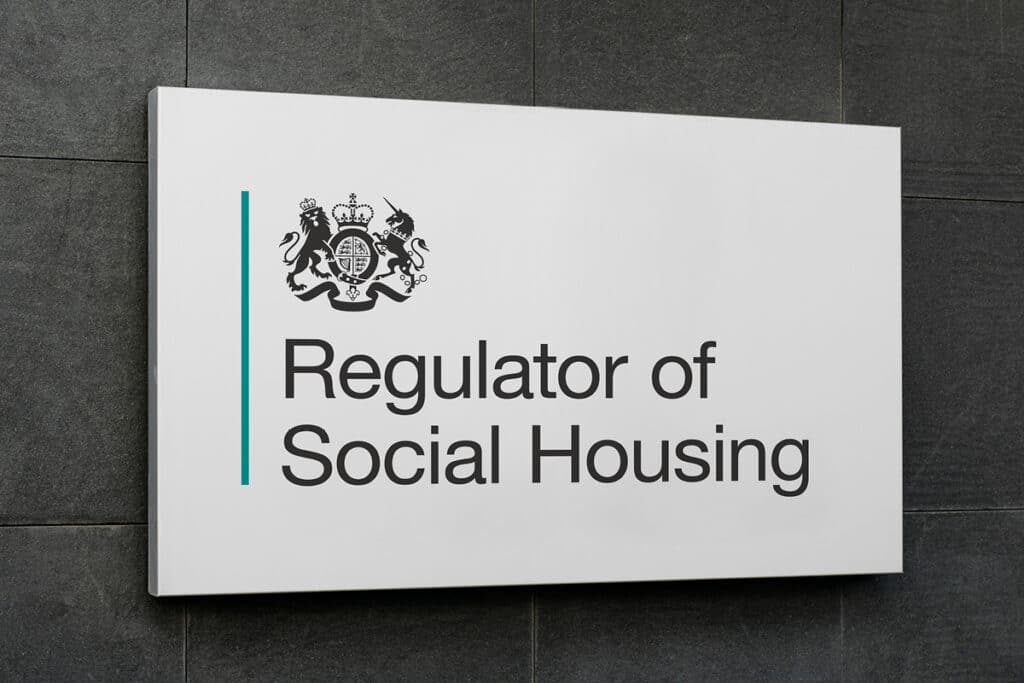This Month In Social Housing: March 2024
The Easter weekend has come and gone and with it draws another hectic month in the sector to a close. If you’ve been too busy to keep your finger on the pulse of all that’s gone down in social housing town this past thirty days then we, as have done you a solid and neatly packaged up five of the biggest stories from March into this easily digestible news round-up. So, grab yourself a brew and take ten minutes to read up on what you’ve missed in the March edition of This Month In Social Housing…

Household Support Fund Extended by Six Months
The government has announced a six-month extension of the Household Support Fund (HSF) following the Spring Budget. Originally set to conclude at the end of March, the fund will continue providing assistance to families in need through foodbanks, warm spaces, and food vouchers. Chancellor Jeremy Hunt cited input from charities and MPs in the decision to prolong the fund amidst ongoing economic challenges, including inflation. Since its inception in October 2021, the HSF has distributed £2.5 billion, primarily aiding households with essential expenses during the winter months. While administered in England, devolved governments receive funding through the Barnett formula. Eligibility for the fund is open to all, with priority given to those facing financial hardship. The extension comes after appeals from over 120 organisations and support from a cross-party coalition of 160 English councils, highlighting the fund’s crucial role as a lifeline for vulnerable households.

Housing Association Arrears Rise 8.4% to Record High
Unpaid rent owed to housing associations has surged to nearly £800 million, marking an 8.4% increase—a record high after a significant spike last year, according to Inside Housing. The Regulator of Social Housing (RSH) recorded this steep rise, prompting calls from industry bodies and housing campaigners for reforms within the sector. Over recent years, arrears have steadily risen, with the figure reaching £798 million in 2023. This rise is attributed to the ongoing cost of living crisis, high borrowing costs, and inflation, putting pressure on both tenants and housing associations. Alistair Smyth, director of policy and research at the National Housing Federation, said: “Rising costs have affected all sectors, including the social housing sector, and to balance affordability for residents with ensuring they can continue to deliver quality homes and services now and in the future, housing associations consider any decisions about rents very carefully. We continue to call on government for a long-term rent settlement for the social housing sector as part of a broader long-term plan for housing.”

Housing Ombudsman Launches Good Practice Consultation
The Housing Ombudsman has initiated a consultation inviting feedback from landlords on its forthcoming issuance of good practice guidelines. The new power, granted under the Social Housing (Regulation) Act 2023, aims to enhance housing standards by drawing insights from complaints. Landlords will receive the guidelines alongside a self-assessment tool to facilitate their application. The Ombudsman advocates for proactive self-assessment by landlords to preempt complaints, although it won’t mandate submission unless necessary. Emphasizing that good practice isn’t synonymous with best practice, the Ombudsman seeks input on potential topics for the initial guidelines. The consultation, running until May 21, 2024, will inform the development of formal good practice guidelines expected to be issued by autumn. Richard Blakeway, the housing ombudsman, said: Good practice will help us be more focused and specific based on our casework and feedback through the consultation that will take place before we issue the guidance – this consultation sets out what it is and how we will approach it. It is an opportunity for you to help shape it, to maximise the benefits for landlords and residents.”

New Consumer Ratings Could See Better Insurance Prices for Housing Associations
The Regulator of Social Housing (RSH) has suggested that new consumer ratings for housing associations could lead to improved deals with insurers. Karen Doran, RSH’s director of regulatory engagement, highlighted the potential benefits of strong consumer ratings at the National Housing Federation’s finance conference. The new consumer regime, effective from April 1st, will evaluate housing associations and councils every four years based on home conditions and tenant treatment. The introduction of consumer ratings alongside existing viability and governance metrics aims to enhance transparency and accountability. Doran emphasized the importance of up-to-date stock-condition data and tenant involvement in decision-making processes. Despite the emphasis on consumer ratings, the RSH assured that governance and viability assessments remain crucial. Doran acknowledged a potential trade-off between consumer and viability ratings but stressed the importance of context in their interpretation.

Major Bank Pledges to Lend £5bn to Social Housing Sector Over The Next Three Years
NatWest Group has committed to lending £5 billion to the UK social housing sector over the next three years, aiming to alleviate economic pressures faced by housing providers and homeowners. This pledge encompasses new funding from January 2024 to end of 2026, targeting the construction of new homes and enhancements to existing properties’ living conditions. The funding could also facilitate energy-efficient upgrades and retrofits for landlords. NatWest’s ongoing support for approximately 200 housing associations includes nearly £3 billion in new funding in 2023 alone. Notably, the bank has issued a £860 million affordable housing social bond and provided substantial loans to housing developers in Northern Ireland and Scotland. Collaborating with Prince William’s Homewards program, NatWest seeks to prevent homelessness by offering support and expertise at both regional and national levels. Robert Begbie, Chief Executive of Commercial and Institutional Banking, said: “Against a backdrop of inflation and rising living costs, pressures on the housing sector and homeowners have increased. These increasing costs reduce the capacity to deal with other priorities, such as new and upgraded housing, and tackling the critical challenges of energy efficiency, fire and tenant safety.”
That’s our handy round-up done for another month. We’re all off to contemplate whether it’s too early to start busting out the shorts and summer dresses or if the recent burst of sunshine was merely a blip (and we’ll come a cropper by getting caught in a downpour whilst inappropriately dressed). As always though, we’ll be back here to do the news all over again at the same time next month, so be sure to join us then!
- Seasons Greetings from Mobysoft! - December 24, 2024
- Spotting the Silence: The Crucial Role of RepairSense in Social Housing Maintenance - November 19, 2024
- How Data-Driven Insights Can Improve Tenant Satisfaction in Temporary Accommodation - October 18, 2024